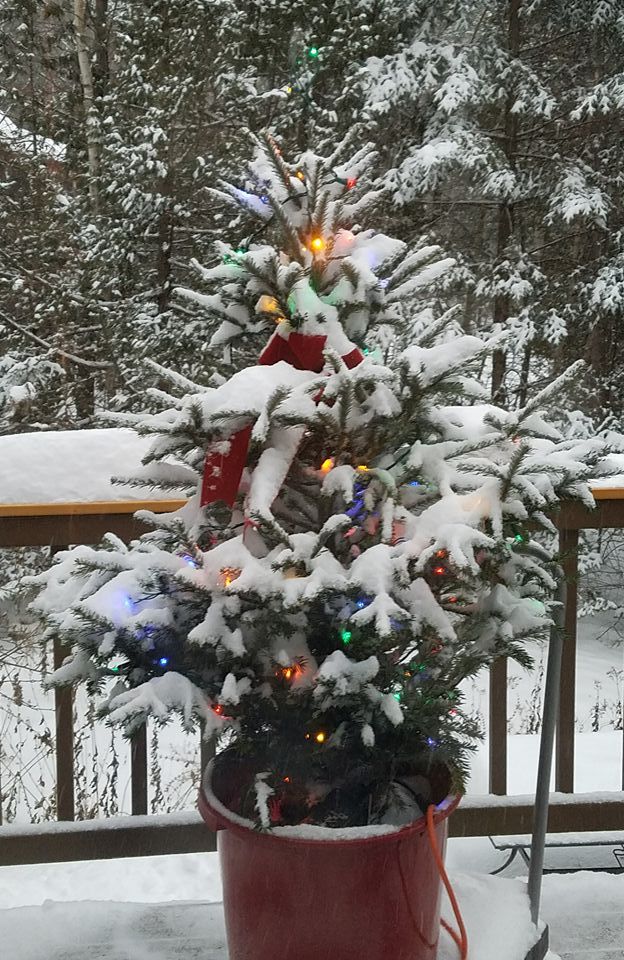big picture
This live tree out on the porch makes me happy. It loves the rain and snow and will get planted in the spring. From my desk which has been moved into the living room for the deep cold season I can glance to the left and see it. The windows on my right show deepening sunset on a frozen lake.
Saturday we drove in a snow storm to Bangor because nothing preempts getting a haircut. That was alternately boring/slow and harrowing. When an 18-wheeler passes you on the interstate, you are in a snow cloud for about 30 seconds with no visibility. And getting off at an exit is almost a guess as to where the ramp is. 
One thrashes around at a terrible historic moment like this election and tries to rise above it all and get a sense of some big picture and where these events fit in. The most helpful piece I read in that regard is this one: Trump, Putin and the Pipelines to Nowhere by Alex Steffen. Climate change is the big picture and Trump's cabinet of horrors are those folks who will lose a lot of money when the Carbon Bubble pops. "And here’s the thing about bubbles: they always pop."
Climate action will trigger an enormous shift in the way we value things. If we can't burn oil, it’s not worth very much. If we can't defend coastal real estate from rising seas (or even insure it, for that matter), it’s not worth very much. If the industrial process a company owns exposes them to future climate litigation, it’s not worth very much. The value of those assets is going to plummet, inevitably… and likely, soon.
Here’s something critical it took me a long time (and the patience of a few smart friends) to understand: the Carbon Bubble will pop not when high-carbon practices become impossible, but when their profits cease to be seen as reliable.In these crazy political times I look around for something helpful to do. And the thing that keeps presenting itself is this: serve some coffee in a place where people can sit and talk and call it Work in Progress.
As it becomes clear that these assets will not produce profit in the future, their valuations will drop — even if the businesses that own them continue to function for years. The value of oil companies will collapse long before the last barrel of oil is burned; the value of beachfront hotels will collapse long before rising tides flood their lobbies.
Put another way: The pop comes when people understand that growth in these industries is over and that, in fact, these industries are now going to contract. That’s when investors start pulling out and looking for safer bets. As investors begin to flee these companies, others realize more devaluation is on the way, so they want to get out before the drop: a trickle of divestment becomes a flood and the price collapses. What triggers the drop is investors ceasing to believe the company has a strong future. Because that risk already exists, the pop is way closer than most people understand.
 themselves into more misery, just at this time we get to sit in a catholic church in Belfast with our whole community and mourn the death of John Fox, a local young man and senior at Unity College. This spring he and a friend helped me put the dock in. We've know the family a long time. I was dreading the most mournful song ever, the
themselves into more misery, just at this time we get to sit in a catholic church in Belfast with our whole community and mourn the death of John Fox, a local young man and senior at Unity College. This spring he and a friend helped me put the dock in. We've know the family a long time. I was dreading the most mournful song ever, the 